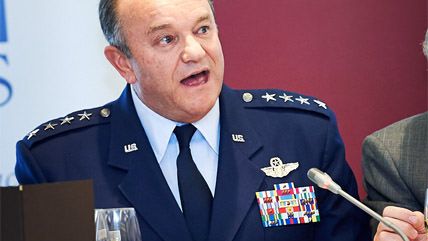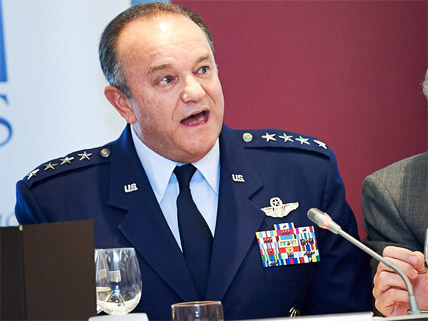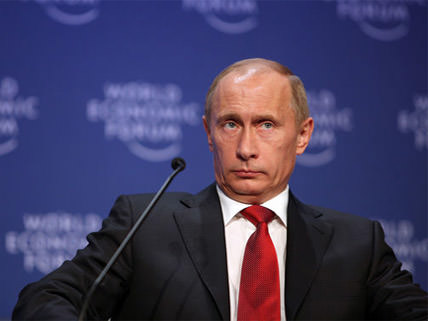NATO May Permanently Station Troops in Eastern Europe; Russia Reportedly Removed Troops From Ukrainian Border


NATO Supreme Allied Commander in Europe Philip Breedlove said that the military alliance may permanently station troops in Eastern European member countries due to the perceived threat of further Russian aggression against Ukraine. At the same time, Russian President Vladimir Putin says that he has withdrawn troops from Ukraine's eastern border.
Reuters reports that when asked about the possibility of a permanent presence of troops, Breedlove said the strategy "is something we have to consider" and will be discussed among alliance leaders to "see where that leads." He explained further:
We need to look at our responsiveness, our readiness and then our positioning of forces to be able to address this new paradigm that we have seen demonstrated in Crimea and now on the eastern border of Ukraine…. We are taking measures that should be very easily discerned as being defensive in nature. This is about assuring our allies, not provoking Russia, and we are communicating that at every level.

The U.S., the largest supplier of both military personnel and funding for NATO, recently sent 600 troops throughout Poland, Lithuana, Latvia, and Estonia to conduct military exercises.
Earlier this week Breedlove speculated about Russian strategy in the destabilization of Ukraine. "I think the Russians have learned from what they saw Crimea, how quickly we were able to attack the false narrative and prove it incorrect; they're much quicker in Eastern Ukraine to get the local face on their actions after they have moved forward," he said, referring to Russian troops as "shadow soldiers" disguised to look like locals.
Putin made a surprising announcement today, though. Regarding the artillery, planes, and estimated 40,000 soldiers that have been amassed for months and explicitly used to threaten an invasion of Ukraine, the Kremlin leader said, "We were told constantly about concerns over our troops near the Ukrainian border. We have pulled them back. Today they are not at the Ukrainian border but in places of regular exercises, at training grounds." He made the statement after a meeting with the president of Switzerland, Didier Burkhalter, who is also the head of the Organization for Security and Cooperation in Europe.
Click here for more Reason coverage of the crisis in Ukraine.


Show Comments (78)